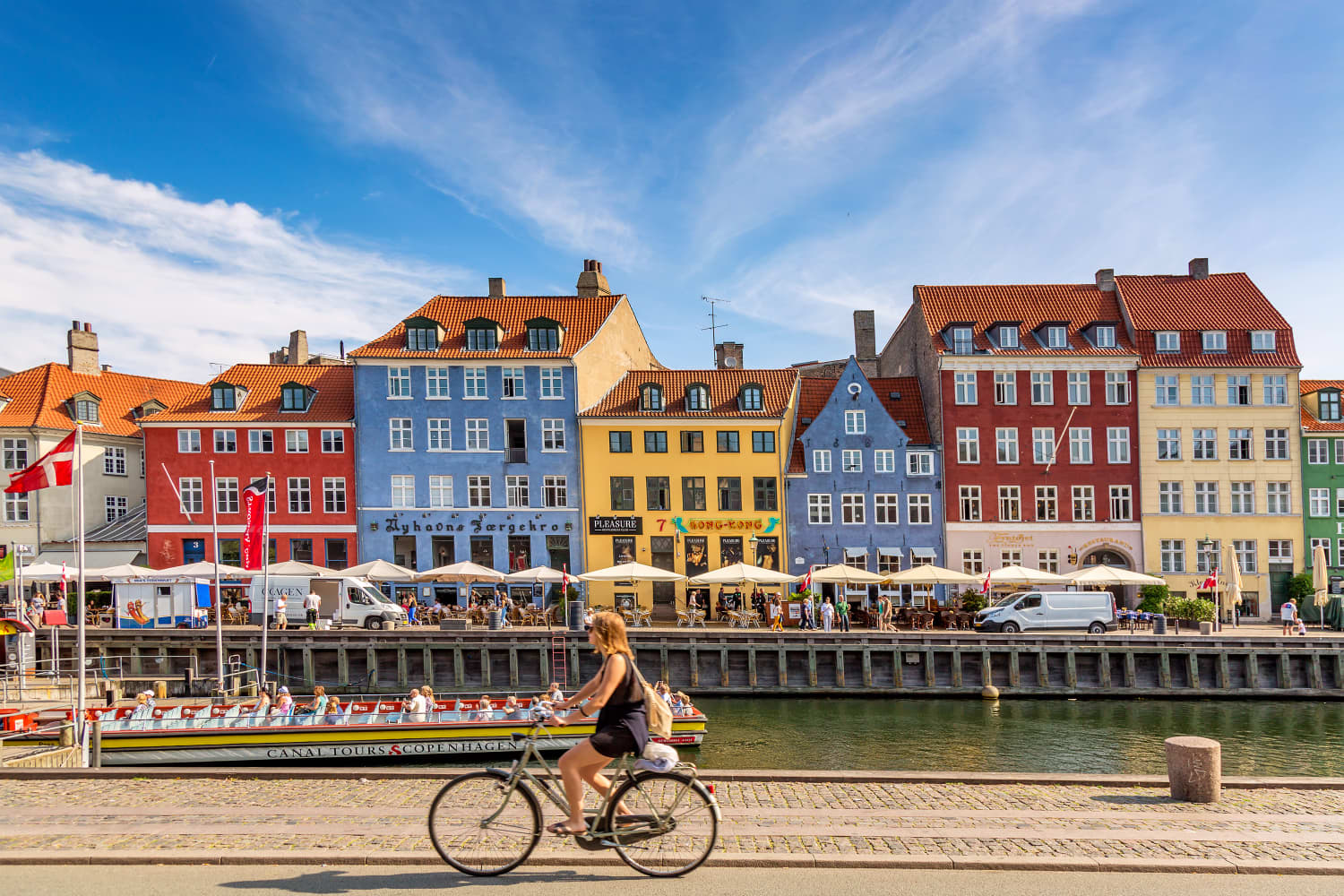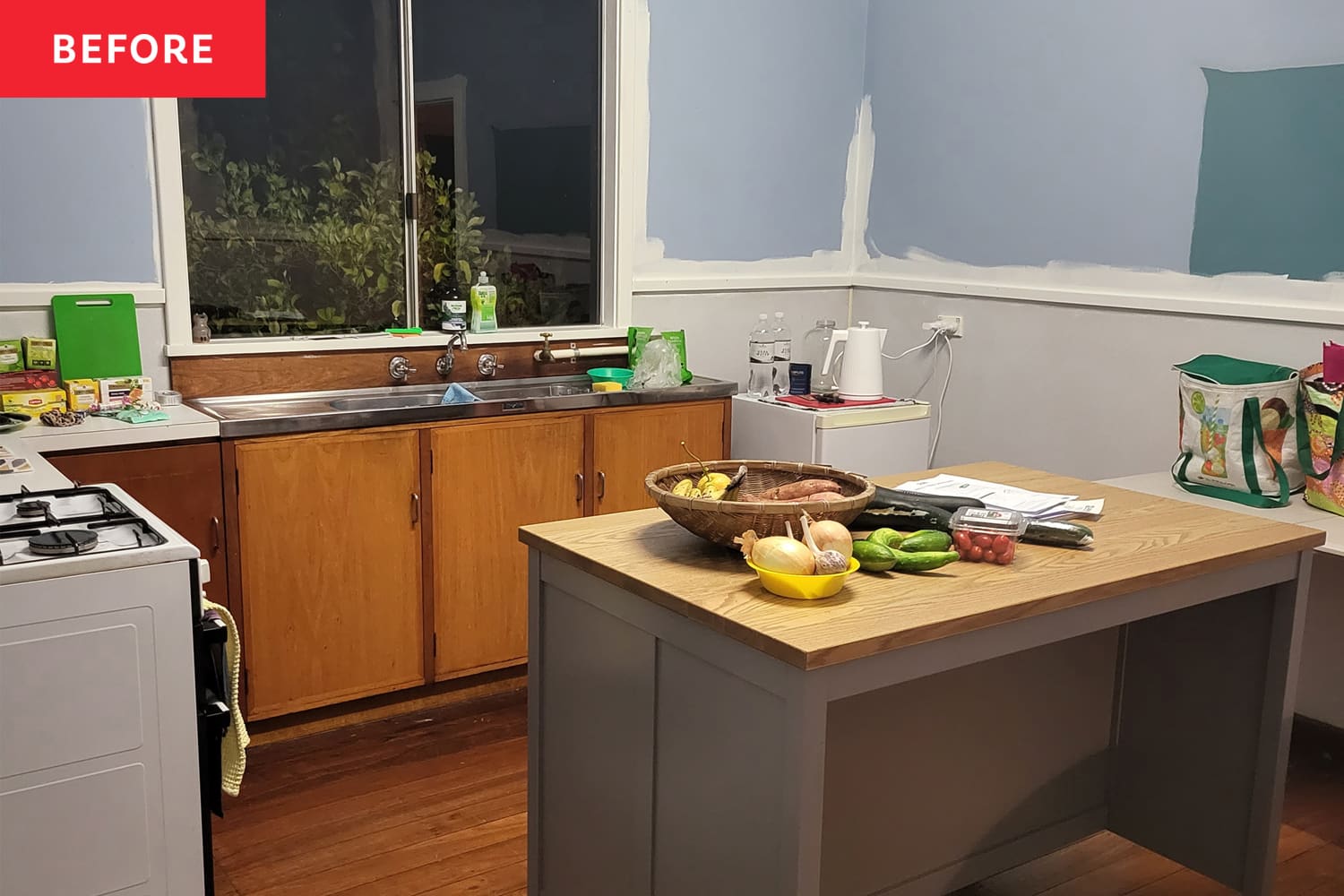
Known for aesthetically pleasing sights, acclaimed fine dining, and environmental sustainability, Denmark is a lovely country with a lot to offer. It’s a big cycling country (nine out of 10 Danes own a bike!) filled with islands, beaches, and national parks, and there’s also a big cultural focus on hygge and Scandi design, business (including a shorter, more efficient workday), and food (Noma, anyone?). If you’ve visited Denmark and found yourself falling in love with the country, you may be wondering how to move to Denmark yourself as a U.S. citizen.
Although Denmark’s net migration rate has steadily risen since 2010, data from the World Bank shows that the amount of people moving there has actually declined slightly between now and 2023. Denmark is still a popular travel destination, though — the amount of time Americans spend there has nearly doubled since 2014.
How can U.S. citizens move to Denmark?
If you’ve visited Denmark before and can’t wait to keep exploring this Nordic country, you’ll be glad to know that Americans can stay for three months before any type of residence or work permit is required. That’s nice, especially because it’s good to take time to get to know a new area before taking the plunge and moving your life there.
Americans seeking a long-term stay in Denmark can qualify for work, study, or family reunification residence permits depending on their situation. But there are some requirements you must meet. If you’re joining a spouse who is a Danish citizen, you must be at least 24 years old, for example. You also need to have visited Denmark before, pass a Danish language test, and both you and your spouse must prove that you’ve been consistently working full-time and have at least one year of higher education experience.
How much money do you need to immigrate to Denmark?
Per the 2024 Cost of Living Index, Copenhagen, Denmark, is about 25% cheaper than New York City overall (the COI includes factors like the relative prices of consumer goods, restaurants, transportation, and utilities). However, Americans may find that Danish society comes with some unexpected expenses.
“Americans who move to Denmark and plan to rent housing may be surprised that they are asked for six times the monthly rent: 3 months rent in advance, plus 3 months’ security deposit. The security deposit is notoriously difficult to get back when you move out,” explains Kay Xander Mellish, a speaker, writer, podcast host, and American expat in Denmark who has written multiple books, including How To Live in Denmark and How To Work in Denmark.
“In addition, Danes pay a 25% sales tax (VAT or MOMS) on food in the supermarket as well as prepared food, which means food prices tend to be higher,” Mellish adds, but notes that cell phone plans and gym memberships are generally more affordable than their U.S. counterparts.
In addition to general cost of living expenses, airfare, and moving expenses, you will have to pay permit application fees. Family reunification residence permits cost 8,575 Danish Kroner, or about $1,260. PhD and startup permits are 2,490 DK ($630), while worker fees are generally 6,290 DK ($924). Many Danish residence permits also require you to prove you have enough funds to support yourself.
Can I move to Denmark without a job?
Unless you’re joining a Danish spouse or have very specific familial circumstances, it’ll be tough to move to Denmark without a job.
There are some exceptions: Those completing a PhD program in Denmark can stay for the duration of their program plus three additional years to account for job seeking. If you’re under 30, unmarried, and childless, you may be able to become an au pair for a Danish family, but this only allows you to stay in Denmark for two years.
If you don’t qualify for other types of residence permits, you’re going to want a Danish job.
“In terms of special skills, it’s always a good idea to look on the ‘positive list,’ which is a list of professional skills that the Danish government feels Denmark is a bit short on. The list changes every six months,” Mellish says. “IT specialists and healthcare professionals are almost always on the positive list, but to work in healthcare in Denmark you must speak fluent Danish. Other job roles might not require this, and some international companies even have English as their ‘corporate language.’”
Indeed, according to the U.S. Embassy and Consulate in Denmark, basic knowledge of the Danish language is generally required for most jobs in the country, although English can be more common in bigger cities.
NB: Ratingmania is a place to find the finest discounts on the internet and all the necessities.
Source url www.apartmenttherapy.com
Moving,Real Estate,team:real estate,platform:search








